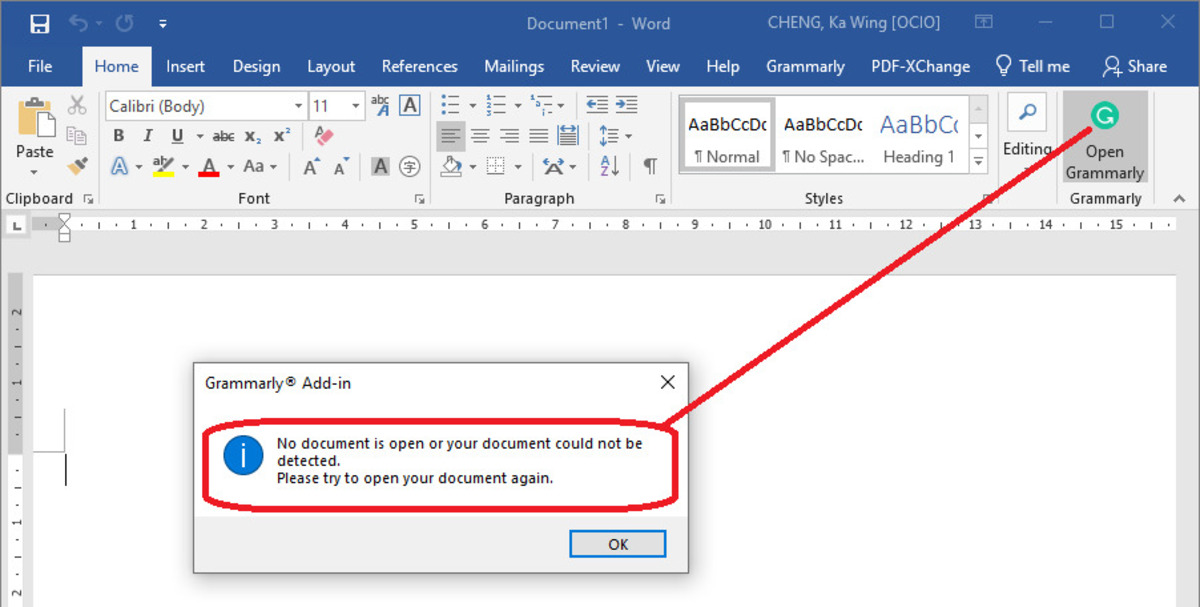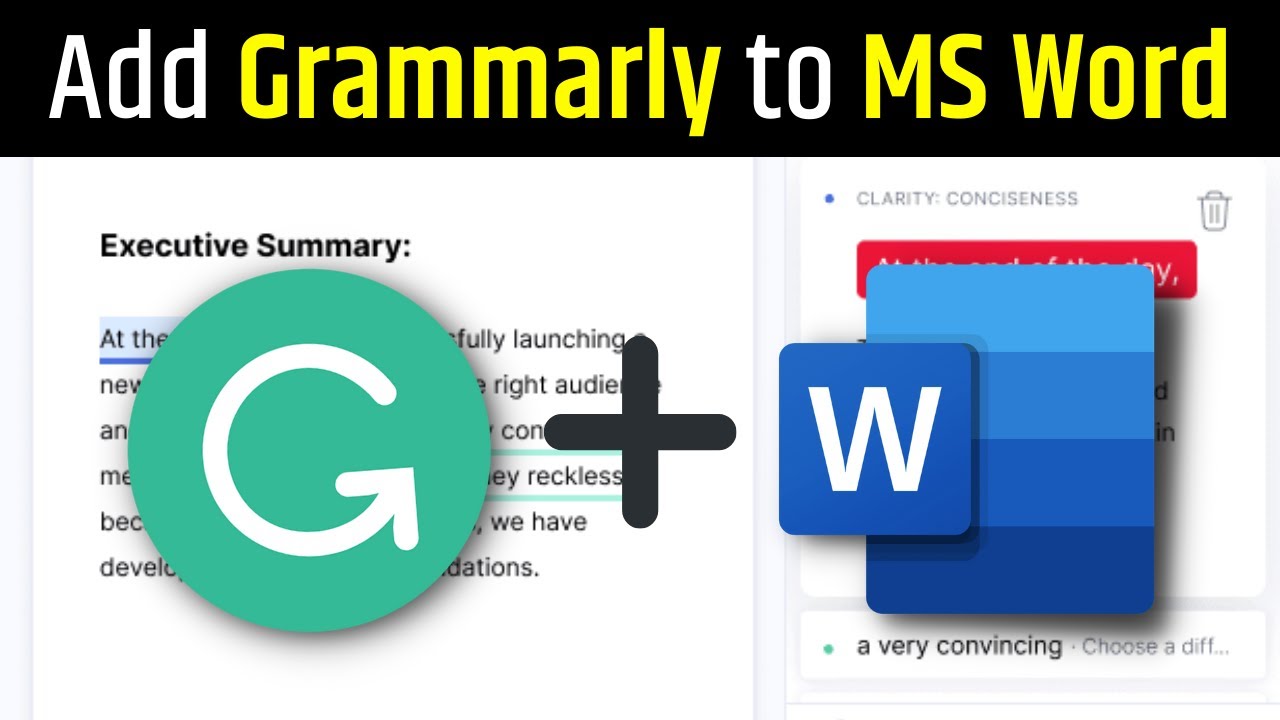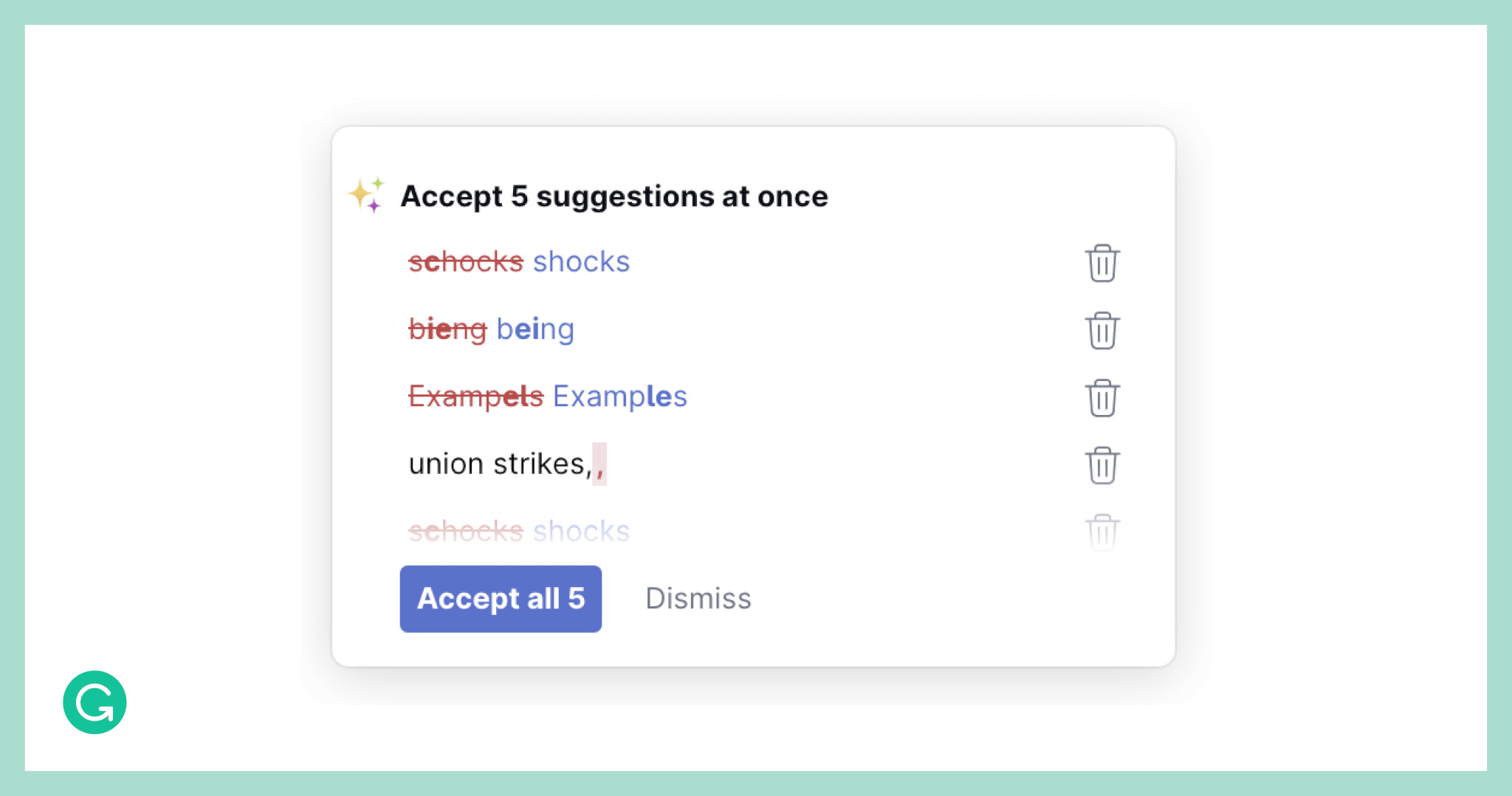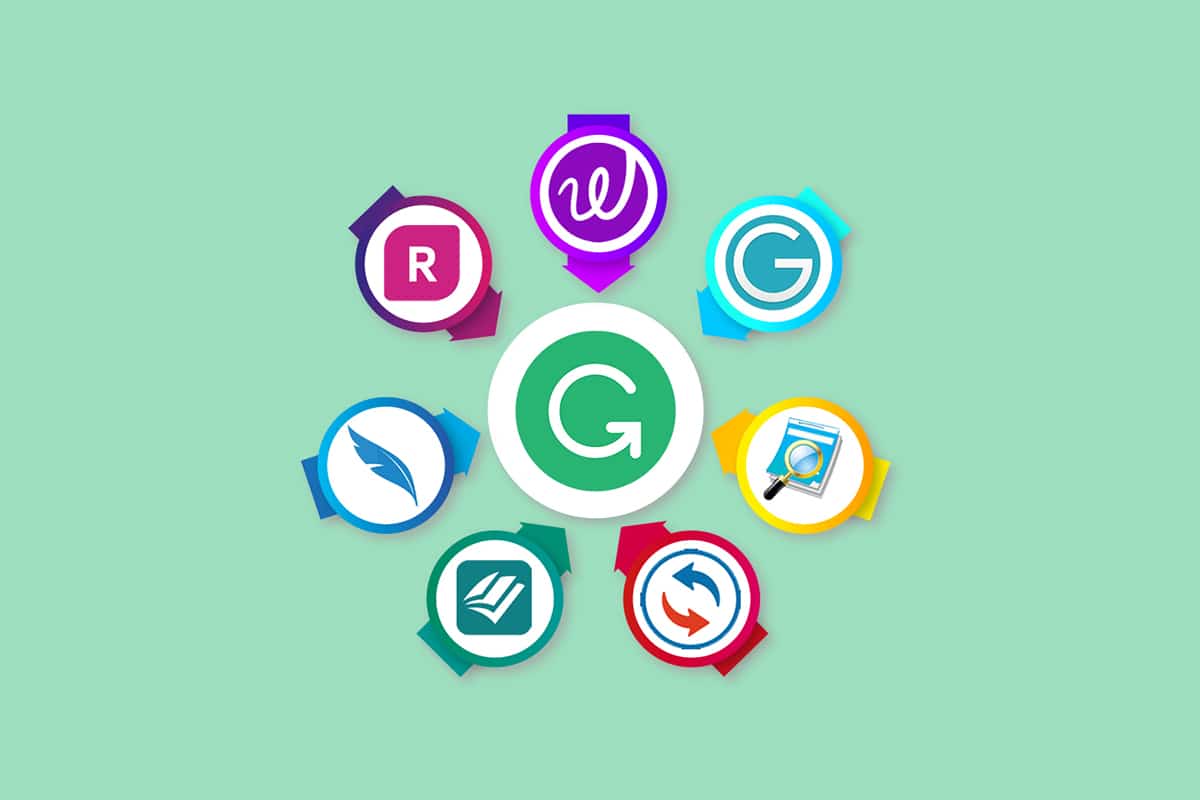Introduction
Welcome to the world of online writing! Whether you’re crafting a blog post, working on a college essay, or sending professional emails, grammar and spelling mistakes can be embarrassing and undermine your message. This is where grammar checking tools like Grammarly come to the rescue. But with the growing concerns about online privacy, many users wonder: does Grammarly track what you type?
Grammarly, known for its AI-powered grammar and spell-checking features, has become incredibly popular among writers of all backgrounds. It provides suggestions for improving sentence structure, grammar, punctuation, and even offers vocabulary enhancements. However, the functionality of the software has led some users to question how it collects and uses their data.
In this article, we will delve into the inner workings of Grammarly and explore whether it tracks your every keystroke. We will also look at the privacy concerns associated with the use of Grammarly and alternative tools that can help ensure the security of your writing.
Before we delve into the details, it’s important to understand how Grammarly works.
What is Grammarly?
If you’re a writer, student, or professional, chances are you’ve heard of Grammarly. Grammarly is an online writing assistant tool that helps users improve their grammar, spelling, and overall writing style. It acts as a virtual editor, offering real-time suggestions and corrections to make your writing more polished and professional.
Grammarly offers a range of features designed to enhance your writing. Its grammar checker scans your text for common grammatical errors, such as subject-verb agreement, verb tense consistency, and punctuation mistakes. It also provides feedback on sentence structure, suggesting ways to improve clarity and readability.
In addition to grammar checking, Grammarly offers spell checking capabilities, helping users catch typos and misspelled words. It even provides contextual spelling suggestions, taking into account the context of your writing to offer the most appropriate options.
Beyond grammar and spelling, Grammarly also offers style suggestions. Its advanced algorithms analyze your writing patterns and make suggestions to help you refine your writing style. These suggestions range from eliminating wordiness and improving sentence variety to offering alternative phrasing suggestions.
Grammarly is available as a browser extension, a Microsoft Office add-in, and a standalone web application. This means you can use it across various platforms and applications, ensuring that your writing is error-free and polished no matter where you’re working.
Now that we have a better understanding of what Grammarly is, let’s explore the question: does Grammarly track what you type?
How does Grammarly work?
Grammarly utilizes advanced AI algorithms and natural language processing to analyze and evaluate your writing. When you type or paste text into Grammarly, the software scans your content and compares it against an extensive database of grammar and writing rules.
The algorithms identify grammar, spelling, and punctuation errors by taking into account contextual clues and common writing conventions. It also recognizes common style and formatting issues and provides suggestions to improve the overall quality of your writing.
One of the key features of Grammarly is its ability to provide real-time suggestions as you type. This means that as you’re crafting your document, Grammarly flags potential errors and offers suggestions to fix them. This not only helps you catch mistakes on the spot but also helps you learn and improve your writing skills over time.
Grammarly offers different types of suggestions, including grammar, spelling, punctuation, clarity, engagement, and delivery. This comprehensive approach ensures that your writing is not only grammatically correct but is also engaging and effective at conveying your message.
In addition to the in-line suggestions, Grammarly provides a sidebar with detailed explanations and suggestions for improvement. This feature allows you to understand the reasoning behind the suggested changes and learn from them.
Furthermore, Grammarly provides a plagiarism checker to ensure the originality and authenticity of your work. It scans your text against a vast database of online sources to identify any potential instances of plagiarism.
It’s important to note that Grammarly works by analyzing your text locally on your device or through encrypted connections. This ensures that your content remains private and secure during the editing process.
Now that we have an understanding of how Grammarly works, let’s address the question: does Grammarly track what you type?
Does Grammarly track what you type?
Many users are concerned about the privacy implications of grammar checking tools like Grammarly. The main worry is whether Grammarly tracks and retains the text you input into the application.
According to Grammarly’s privacy policy, the company does collect and log information about your use of their services. This includes data such as your IP address, device information, and cookies. However, Grammarly explicitly states that it does not track or store what you type in any text field or document that does not belong to Grammarly.
When you use Grammarly, your text is encrypted and sent to Grammarly’s servers for analysis. The analysis is performed in real-time, with the sole purpose of providing you with grammar and writing suggestions. Once the analysis is complete, the processed text is securely deleted from Grammarly’s servers. This means that Grammarly does not retain any record of the text you input.
Grammarly’s commitment to privacy is further reinforced by its compliance with industry-standard security measures. The company uses advanced encryption protocols to protect your data during transmission and storage. They also adhere to strict data protection regulations to ensure the security of user information.
It’s important to note that while Grammarly does not track what you type within its application, it does collect and analyze aggregated data for research and development purposes. This anonymized data is used to improve the accuracy and effectiveness of Grammarly’s algorithms.
In summary, Grammarly does not track or retain the specific text you input into their application. Your writing remains private and secure while using Grammarly’s services.
Now that we have addressed the privacy concerns surrounding Grammarly, let’s take a closer look at Grammarly’s data usage policy.
Privacy Concerns with Grammarly
While Grammarly assures users that it does not track or retain the specific text they input into the application, privacy concerns still exist. Some users worry about the potential risks associated with sharing their writing with a third-party service.
One concern is the possibility of data breaches. Although Grammarly implements security measures to protect user data, no system is entirely immune to hackers. A data breach could expose users’ personal information and documents, potentially compromising their privacy and security.
Another concern is the potential for data mining. Grammarly’s privacy policy states that the company collects and analyzes aggregated data for research and development purposes. While this data is anonymized and used to improve the effectiveness of their algorithms, some users may still be uncomfortable with their writing being used for these purposes.
Additionally, there is the issue of user consent and control over their data. Some users feel that they should have more control over how their data is used, including the ability to opt out of data collection and storage altogether.
It is important for users to carefully consider their own privacy preferences and weigh them against the benefits of using Grammarly. If privacy is a top concern, there are alternative options available that prioritize data privacy in their approach.
Now that we have addressed the privacy concerns associated with Grammarly, let’s take a closer look at Grammarly’s data usage policy.
Grammarly’s Data Usage Policy
Grammarly takes user privacy and data security seriously. The company has implemented a data usage policy that outlines how they collect, use, and protect user information.
According to Grammarly’s data usage policy, the company collects and logs certain information to provide and improve their services. This includes data such as IP addresses, device information, and cookies. However, Grammarly explicitly states that they do not store or track the specific text that users input into the application.
Grammarly uses the collected data for various purposes, including improving their software, diagnosing technical issues, and conducting research and development. However, these activities are performed on aggregated and anonymized data, ensuring the privacy and confidentiality of individual users.
Grammarly also states that they do not sell, rent, or share user information with third parties for their own marketing purposes. They may, however, share information with trusted third-party service providers who assist in delivering their services, subject to strict data protection and confidentiality agreements.
In terms of data security, Grammarly employs industry-standard security measures to protect user information. They use encryption protocols to safeguard data during transmission and storage, and regularly monitor their systems for potential vulnerabilities and threats.
Grammarly’s commitment to data privacy and security is evident in their compliance with relevant data protection laws and regulations. They strive to meet the highest standards to ensure the confidentiality and integrity of user information.
If users have concerns about their data privacy, Grammarly provides options for controlling or limiting data collection. Users can review and update their privacy settings in their Grammarly account, allowing them to customize their data sharing preferences.
Now that we have explored Grammarly’s data usage policy, let’s address the question of whether Grammarly is safe to use.
Is Grammarly safe to use?
One of the primary concerns when using any online service is data safety. Users want assurance that their information remains secure and protected. So, is Grammarly safe to use?
In terms of data security, Grammarly has implemented measures to safeguard user information. They use encryption protocols to protect data during transmission and storage. Additionally, Grammarly’s compliance with relevant data protection laws and regulations ensures the confidentiality and integrity of user information.
Grammarly’s data usage policy also provides transparency about how user data is collected, used, and shared. They state that they do not track or store the specific text users input into the application, addressing concerns about their writing being monitored and retained.
While Grammarly’s commitment to data security and privacy is reassuring, it is essential for users to be aware of potential risks. No system is entirely immune to cyber threats, and data breaches can happen even with robust security measures in place.
Users should also consider the possible implications of sharing their writing with a third-party service. Although Grammarly’s data usage policy ensures privacy and confidentiality, some users may still have reservations about the collection and use of their data for research and development purposes.
Ultimately, the decision to use Grammarly comes down to balancing the convenience and benefits it offers with individual privacy preferences. If privacy is a top concern, exploring alternative tools that prioritize data privacy may be worth considering.
Now that we have discussed the safety of using Grammarly, let’s explore some alternatives to Grammarly.
Alternatives to Grammarly
If you’re looking for alternatives to Grammarly that prioritize data privacy or offer different features, there are several options available to consider:
- ProWritingAid: ProWritingAid offers comprehensive grammar and style checking, as well as in-depth reports on writing improvement. It provides tools for checking grammar, style, spelling, and readability, making it a popular choice among writers.
- Hemingway Editor: Hemingway Editor focuses on improving the clarity and readability of your writing. It highlights complex sentences, passive voice, and common errors, helping you simplify and tighten your prose.
- LanguageTool: LanguageTool is an open-source grammar checker that supports over 25 languages. It offers grammar, style, and spelling suggestions, making it a versatile option for writers in multiple languages.
- WhiteSmoke: WhiteSmoke combines grammar and spell-checking capabilities with translation and writing enrichment tools. It offers a comprehensive suite of features for writers of all levels.
- Ginger: Ginger is a writing assistant that provides grammar and spell-checking, as well as translation capabilities. It also offers a text reader feature to help you improve pronunciation and fluency.
Each of these alternatives has its own unique features and strengths. Before making a choice, consider your specific writing needs and prioritize the aspects that matter most to you, such as data privacy, available languages, or additional writing tools.
Remember that no tool is perfect, and different options may align better with certain writing styles or preferences. It can be worthwhile to try out different alternatives to find the one that best suits your needs.
Now that we have explored some alternatives to Grammarly, let’s summarize the key points discussed in this article.
Conclusion
In this article, we have explored the question of whether Grammarly tracks what you type and discussed the privacy concerns associated with its use. While Grammarly collects certain user data, including IP addresses and device information, the company explicitly states that it does not track or store the specific text users input into the application.
Grammarly’s commitment to data security and privacy is evident in their implementation of encryption and adherence to data protection regulations. They strive to provide a secure and confidential environment for users to improve their writing skills.
Furthermore, we discussed some alternative tools to Grammarly that offer different features or prioritize data privacy. ProWritingAid, Hemingway Editor, LanguageTool, WhiteSmoke, and Ginger are popular alternatives that cater to a variety of writing needs.
Ultimately, the decision to use Grammarly or any other writing assistant tool depends on individual privacy preferences and writing requirements. It is important for users to weigh the benefits of such tools against their privacy concerns and choose an option that aligns with their needs and values.
Whether you decide to use Grammarly or explore other alternatives, the goal remains the same: to improve your writing and ensure clear, polished, and error-free work that effectively communicates your ideas.
Remember, writing assistance tools are meant to enhance your skills and provide guidance, but they do not replace the importance of honing your own writing abilities through practice and study.
In the end, the key is to find a tool that suits your preferences and helps you become a more effective and confident writer.

























